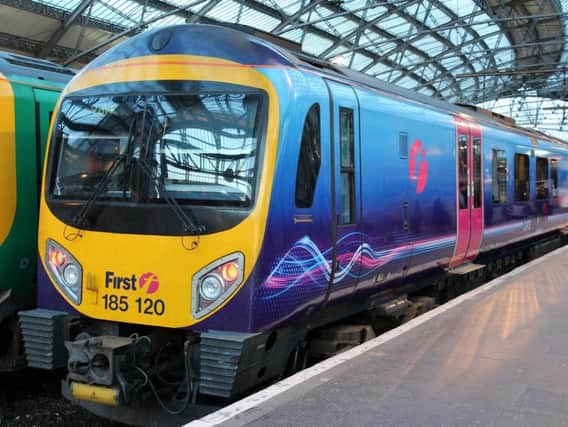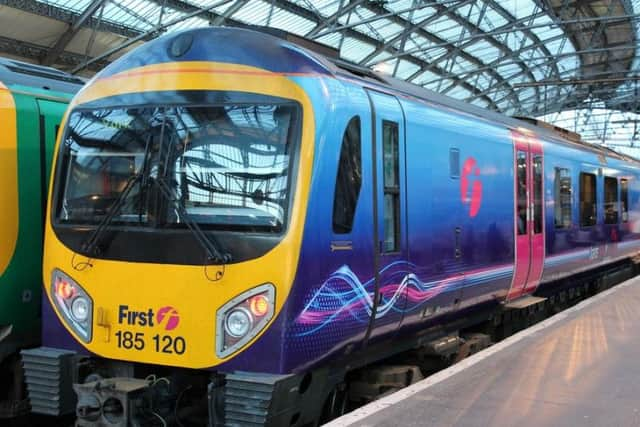Passengers endure awful year as Transpennine Express revealed as the worst train company for cancellations


Nearly four million hours were lost to significantly delayed trains last year, with Transpennine Express and Northern among the worst culprits for disruption.
The findings, from consumer watchdog Which?, cover more than eight million journeys and mean around 80 trains a day were significantly delayed (behind schedule by between 29 and 119 minutes).
Advertisement
Hide AdAdvertisement
Hide AdCancellations were even higher, with 660 trains per day cancelled leaving commuters and travellers scrabbling for alternative transport.


Transpennine the worst for cancellations
Transpennine Express, who mainly run services between Liverpool, Manchester and Newcastle, was the worst of all of the 14 franchises examined by Which?.
A huge 10.4 per cent of the FirstGroup owned train company’s trains were cancelled last year, dwarfing every other franchise and double the amount than all other companies apart from Govia Thameslink.
Embattled train operator Northern, who suffered major delays and cancellations when a new timetable was introduced last year, had nearly four per cent of trains cancelled with 0.4 per cent significantly late.
Advertisement
Hide AdAdvertisement
Hide AdHowever, the company accounted for 12 per cent of all significantly late trains and 14 per cent of all cancellations in 2018.
LNER (previously Virgin East Coast prior to a government bailout of the franchise) and Virgin Trains West Coast which run to Edinburgh and Glasgow from London respectively, were the worst for the proportion of trains arriving significantly delayed.
LNER passengers suffered significant delays almost five per cent of the time, with Virgin Trains West Coast passengers enduring delays three per cent of the time.
Only a third claim for compensation
With the law allowing passengers to claim compensation if their train is more than 30 minutes late arriving at its destination or cancelled, the high number of delays would be expected to be a worry for train operators.
Advertisement
Hide AdAdvertisement
Hide AdHowever, research by Which? showed that just over a third, 34 per cent, of journeys where money is owed for delays or cancellations are being claimed.
Research suggests this is mainly due to the opacity of the compensation process with 36 per cent of people unaware of how or where to claim.
Another 32 per cent do not claim because it is too much effort and one in five did not claim because the compensation would not have been very much.
Shockingly, for six in ten journeys that were significantly delayed or cancelled, passengers were not informed of their right to claim compensation.
Advertisement
Hide AdAdvertisement
Hide AdNeena Bhati, Which? Head of Campaigns said: ““Passengers have faced a torrid time on the trains since the beginning of last year where the rail industry has fundamentally failed on punctuality and reliability.
“People then face a messy and complex compensation system which puts them off claiming when things go wrong.
“A vital way the government’s rail review and industry can start to restore faith is by introducing automatic compensation for delays and cancellations so that passengers don’t have to fight to get the money they are owed.”